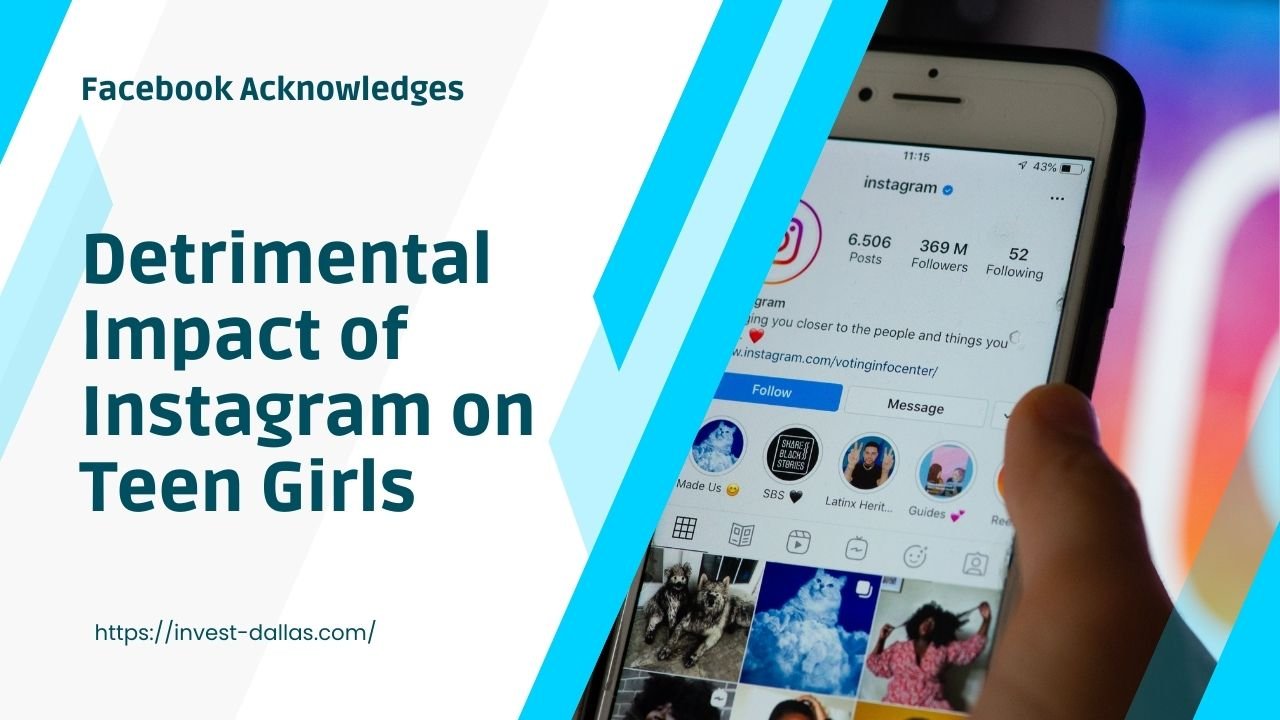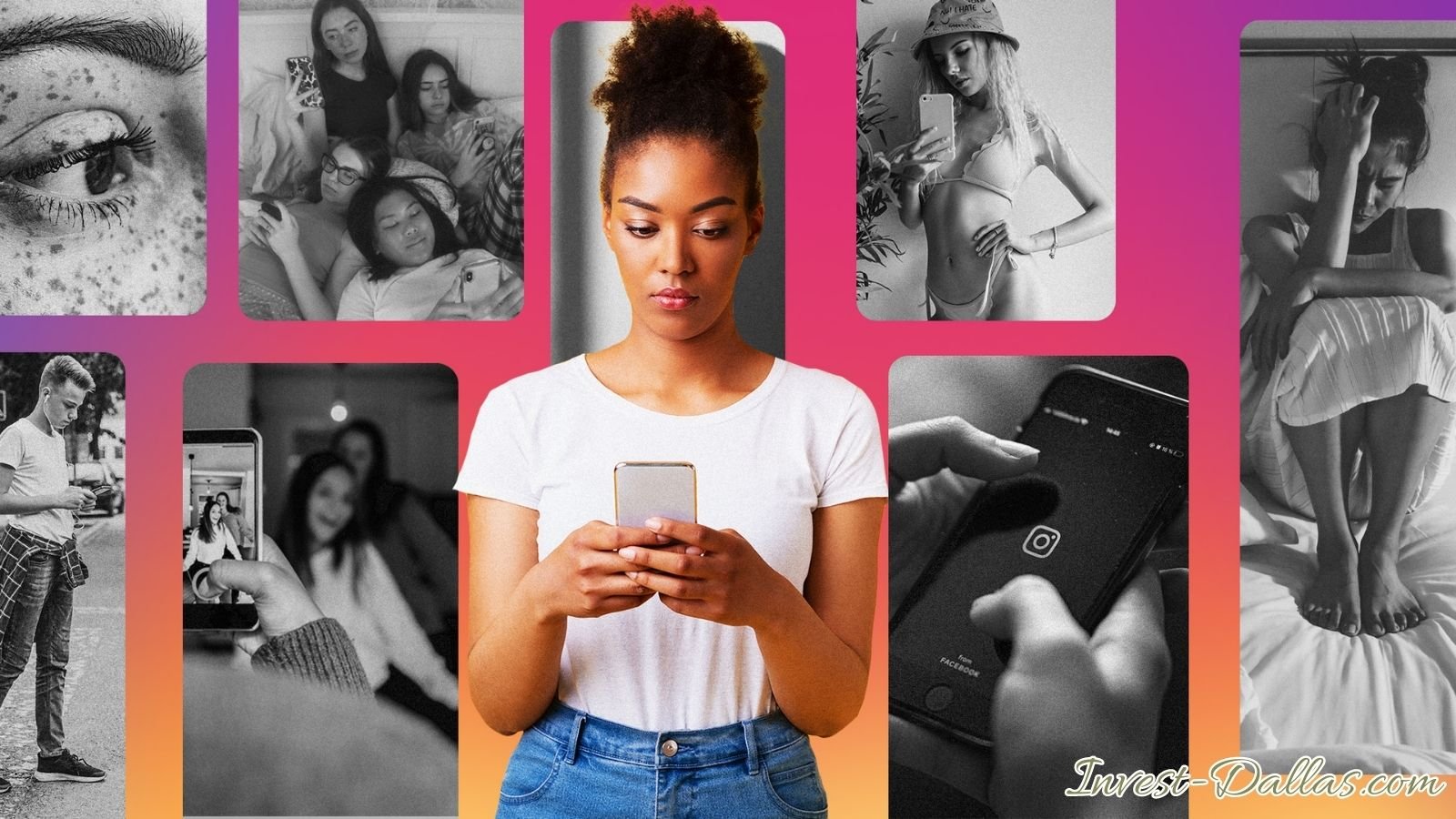
Facebook Acknowledges Detrimental Impact of Instagram on Teen Girls
Facebook Acknowledges Detrimental Impact of Instagram on Teen Girls
In a significant revelation, Facebook has recently acknowledged the adverse effects of Instagram on the well-being of teen girls. The social media giant, which owns the popular photo-sharing platform, has come forward with insights into the potential harm caused by prolonged exposure to the digital realm for young female users. This acknowledgment sheds light on a longstanding concern among parents, educators, and mental health experts about the impact of social media on teenage girls’ mental and emotional health.
As the world grapples with the omnipresence of social networking, this newfound transparency from Facebook raises critical questions about the responsibility of tech companies in safeguarding the vulnerable minds of the younger generation. Let’s delve deeper into the implications of this revelation and explore the measures being taken to address these concerns.
Unveiling the Impact on Teen Girls

Around a year ago, teenager Anastasia Vlasova sought therapy for her eating disorder, which she directly attributed to her time spent on Instagram. At the young age of 13, she joined the platform and eventually found herself spending three hours a day captivated by images of seemingly perfect lives and bodies, predominantly displayed by fitness influencers on the app.
“When I logged onto Instagram, all I saw were images of chiseled bodies, perfect abs, and women effortlessly doing 100 burpees in 10 minutes,” shared Ms. Vlasova, now 18, residing in Reston, Va.
During this period, researchers within Instagram, owned by Facebook Inc., began exploring these experiences and questioning whether they constituted a broader problem. Their discoveries revealed serious concerns.
Read More:
- Tarrant County College: A Thriving Hub of Academic Excellence and Partnerships
- Unleashing the Power of Dallas: Dominance of the Data Center Industry
Disturbing Revelations from Research

In a March 2020 slide presentation on Facebook’s internal message board, the researchers reported, “Thirty-two percent of teen girls said that when they felt bad about their bodies, Instagram made them feel worse.” Furthermore, “Comparisons on Instagram can change how young women view and describe themselves.”
Over the past three years, Facebook has conducted numerous studies on how its photo-sharing app impacts its vast number of young users, with a significant focus on teenage girls. Disturbingly, their research indicated that Instagram is detrimental to a substantial percentage of its users, particularly young females.
“We exacerbate body image issues for one in three teen girls,” stated a slide from 2019, summarizing research on teenage girls experiencing such issues.
Another slide pointed out, “Teens blame Instagram for increases in the rate of anxiety and depression.” Moreover, this reaction was spontaneous and consistent across all groups.
In a presentation, it was disclosed that among teenagers who reported having suicidal thoughts, 13% of British users and 6% of American users attributed their desire to end their lives to Instagram.
Instagram’s Target Demographic
Facebook recognizes that expanding its user base of young individuals is crucial for its annual revenue of over $100 billion. The company aims to safeguard the engagement of young users with the platform.
Over 40% of Instagram’s users are 22 years old or younger, with approximately 22 million teens logging onto Instagram daily in the U.S., while only five million teens log onto Facebook, a platform experiencing a decline in its young user base for a decade.
Teens in the U.S. spend 50% more time on Instagram than they do on Facebook, indicating the former’s stronghold on their attention.
The Quest for Growth

Internal posts by researchers have shown optimism for Instagram’s potential with young people. One post read, “Instagram is well positioned to resonate and win with young people,” while another emphasized, “There is a path to growth if Instagram can continue their trajectory.”
Public Denial and Withheld Research
Despite the internal knowledge of Instagram’s negative effects on teenagers, Facebook has consistently downplayed the app’s impact in public. The research has not been made public or made available to academics or lawmakers who have requested it.
During a congressional hearing in March 2021, when questioned about children’s mental health, CEO Mark Zuckerberg stated, “The research that we’ve seen is that using social apps to connect with other people can have positive mental-health benefits.”
Instagram head, Adam Mosseri, also mentioned in May that the app’s effects on teen well-being are likely “quite small” based on the research he had seen.
Embracing Responsibility and Acknowledging the Drawbacks

In a recent interview, Mr. Mosseri expressed, “In no way do I mean to diminish these issues. Some of the issues mentioned in this story aren’t necessarily widespread, but their impact on people may be huge.”
He acknowledged that Facebook was late to realize the drawbacks of connecting people in such large numbers. However, he emphasized his push for the company to embrace its responsibilities more broadly.
Mr. Mosseri defended the research into the mental-health effects on teens, stating that Facebook employees ask tough questions about the platform. He asserted, “For me, this isn’t dirty laundry. I’m actually very proud of this research.”
The Challenge Ahead
While Instagram may offer many positives, certain features could still prove harmful to some young users, and addressing these issues isn’t straightforward.
In conclusion, Facebook’s internal research has shed light on Instagram’s detrimental impact on teenage girls, with body image issues, anxiety, and depression being among the concerning outcomes. Although Instagram remains popular among young users, the company faces the challenging task of balancing growth with safeguarding the well-being of its vulnerable audience. Embracing responsibility and acknowledging the drawbacks is essential as they strive to create a safer online environment for everyone.







